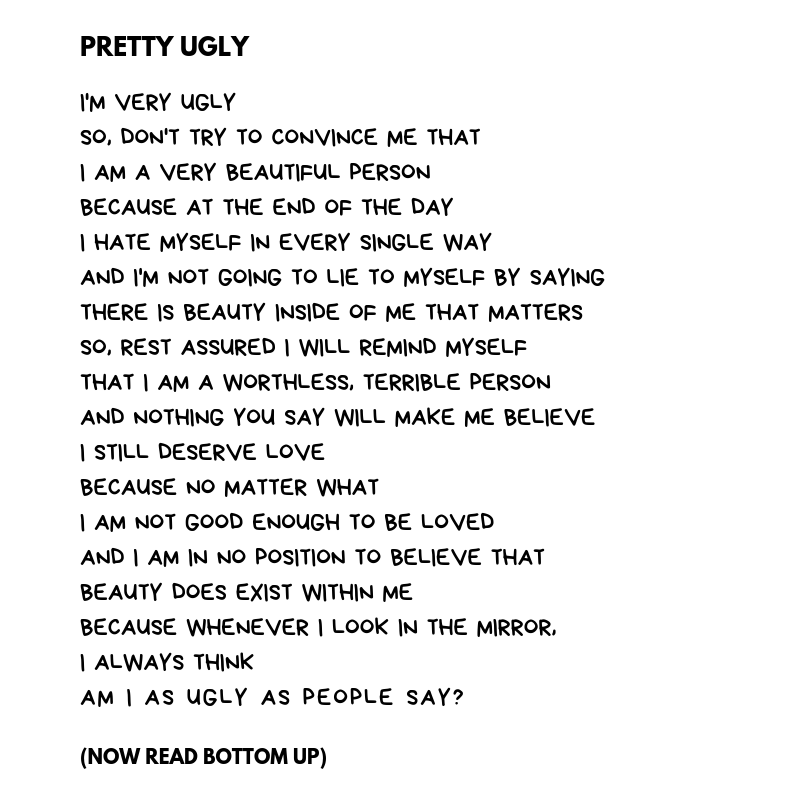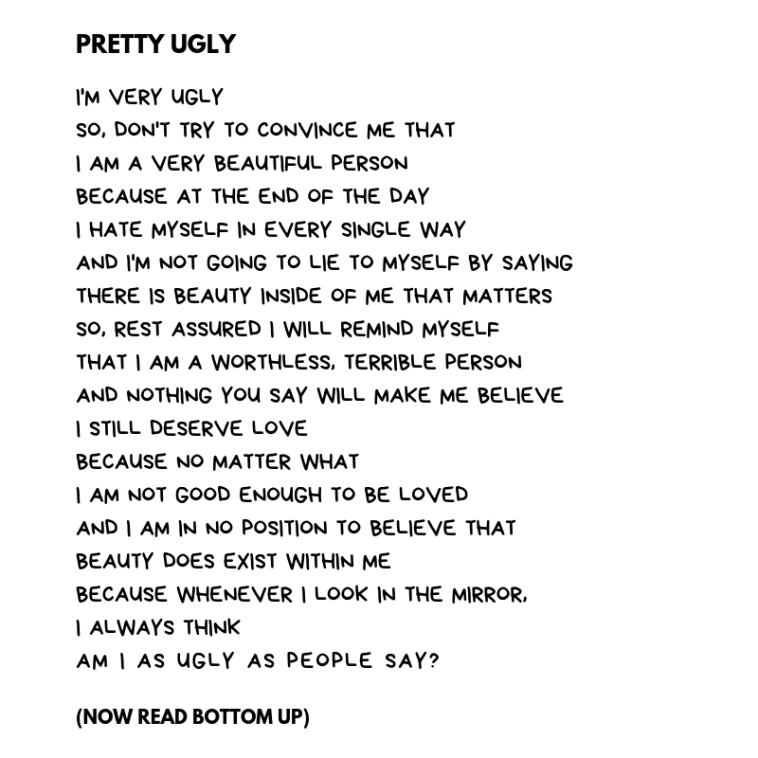
Pretty Ugly
In the mirror’s gaze, I find my reflection—
A canvas of contradictions, hues of imperfection.
Lips curved like petals, yet stained with doubt,
Eyes that hold galaxies, yet shadows linger about.
My skin, a mosaic of stories etched in time,
Each scar a chapter, each line a rhyme.
I wear my flaws like jewels, polished and worn,
For beauty lies not in perfection, but in being reborn.
The mirror whispers secrets, both cruel and kind,
“Embrace your brokenness; therein, wisdom you’ll find.”
So I dance with my shadows, twirl with grace,
Pretty in my ugliness—a masterpiece in this space.
The title itself intrigues—a juxtaposition of contradictory terms. “Pretty” suggests allure, while “Ugly” evokes aversion. Yet, within this dichotomy lies a profound truth: our flaws, scars, and vulnerabilities contribute to our unique beauty.
The poem’s narrator gazes into the mirror, confronting their reflection. Each feature—lips, eyes, skin—holds dual meanings. Lips curved like petals carry both confidence and doubt. Eyes, vast as galaxies, harbor shadows. The skin, a canvas of stories, bears scars and lines—a testament to resilience.
The mirror becomes a confidante, whispering wisdom. It urges acceptance of brokenness, for therein lies growth. The dance with shadows symbolizes embracing imperfections. The narrator, pretty in their ugliness, becomes a masterpiece—a living paradox.
In life’s mirror, we find our own “pretty ugly.” It’s not about perfection; it’s about authenticity. Our flaws, like brushstrokes on a canvas, create a mosaic of resilience and grace
For More Info Click Here
More Such Article Click Here







GIPHY App Key not set. Please check settings